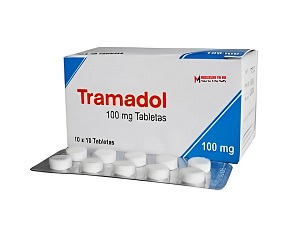What is depression & how to get cure from it ?
Depression is a complex mental health condition that affects millions of people worldwide. It’s important to understand its causes, symptoms, and effective strategies for recovery to promote mental well-being and improve quality of life. Let’s delve into the depths of depression and explore pathways to healing and recovery.
What is Depression?
Depression, also known as major depressive disorder (MDD), is a mood disorder characterized by persistent feelings of sadness, hopelessness, and loss of interest or pleasure in activities once enjoyed. It goes beyond occasional feelings of sadness and can significantly impact daily functioning, relationships, and overall quality of life. Key aspects of depression include:-
- Persistent Sadness: Individuals with depression experience prolonged periods of sadness, emptiness, or despair that extend beyond normal fluctuations in mood.
- Loss of Interest: A hallmark symptom of depression is anhedonia, which refers to the inability to experience pleasure or interest in activities, hobbies, or social interactions.
- Cognitive Changes: Depression can affect cognitive functioning, leading to difficulties with concentration, memory, decision-making, and problem-solving.
- Physical Symptoms: Depression may manifest with physical symptoms such as fatigue, changes in appetite or weight, sleep disturbances (insomnia or hypersomnia), aches or pains, and psychomotor agitation or retardation.
- Emotional Distress: Individuals with depression may experience feelings of worthlessness, guilt, hopelessness, irritability, anxiety, or suicidal thoughts or behaviors.
Causes and Risk Factors
The causes of depression are multifactorial and can vary from person to person. Several factors may contribute to the development of depression, including:
- Biological Factors: Imbalances in neurotransmitters (such as serotonin, dopamine, and norepinephrine) and genetic predispositions can play a role in depression.
- Psychological Factors: Negative thinking patterns, unresolved trauma or childhood experiences, low self-esteem, and chronic stress can contribute to depressive symptoms.
- Environmental Factors: Stressful life events such as loss of a loved one, relationship conflicts, financial difficulties, work-related stress, or chronic illness can trigger or exacerbate depression.
- Social Factors: Lack of social support, isolation, stigma, discrimination, and societal pressures can impact mental health and contribute to depression.
Symptoms of Depression
Recognizing the signs and symptoms of depression is crucial for early intervention and effective treatment. Common symptoms of depression include:-
- Persistent sadness, emptiness, or despair
- Loss of interest or pleasure in activities
- Changes in appetite or weight (overeating or appetite loss)
- Sleep disturbances (insomnia or hypersomnia)
- Fatigue or decreased energy
- Feelings of worthlessness or guilt
- Difficulty concentrating or making decisions
- Irritability or restlessness
- Thoughts of death or suicide
It’s important to note that not everyone with depression experiences all of these symptoms, and symptoms can vary in severity.
Diagnosis and Treatment
Diagnosing depression involves a comprehensive evaluation by a healthcare professional, such as a psychiatrist, psychologist, or primary care physician. A thorough assessment may include:
- Clinical interviews to assess symptoms, history, and functioning
- Physical examinations to rule out medical conditions that may mimic depression
- Psychological assessments or questionnaires to assess mood, cognition, and emotional well-being
Treatment for depression typically involves a combination of psychotherapy, medication, lifestyle changes, and support interventions. Here are key components of depression treatment:-
1. Psychotherapy (Talk Therapy):
- Cognitive-Behavioral Therapy (CBT): CBT is an evidence-based therapy that helps individuals identify and challenge negative thought patterns, develop coping skills, and change behaviors contributing to depression.
- Interpersonal Therapy (IPT): IPT focuses on improving interpersonal relationships, communication skills, and resolving interpersonal conflicts that may contribute to depression.
- Mindfulness-Based Therapies: Mindfulness-based approaches, such as mindfulness-based cognitive therapy (MBCT) and acceptance and commitment therapy (ACT), help individuals cultivate present-moment awareness, reduce rumination, and enhance emotional regulation.
2. Medication:
- Antidepressant Medications: Selective serotonin reuptake inhibitors (SSRIs), serotonin-norepinephrine reuptake inhibitors (SNRIs), tricyclic antidepressants (TCAs), and other medications may be prescribed to manage depressive symptoms. It’s essential to work closely with a healthcare provider to determine the most appropriate medication and dosage.
3. Lifestyle Changes:
- Regular Exercise: Physical activity can improve mood, reduce stress, and increase endorphin levels, promoting overall well-being.
- Healthy Nutrition: Consuming a balanced diet rich in nutrients, vitamins, and omega-3 fatty acids can support brain health and mood regulation.
- Sleep Hygiene: Establishing a regular sleep schedule, practicing good sleep hygiene habits, and addressing sleep disturbances can improve sleep quality and mental health.
- Stress Management: Learning stress-reduction techniques such as relaxation exercises, deep breathing, mindfulness, and time management can help manage stressors contributing to depression.
4. Support and Social Connections:
- Social Support: Building strong social connections, maintaining supportive relationships, and seeking help from friends, family, or support groups can provide emotional validation, encouragement, and a sense of belonging.
5. Self-Care Practices:
- Self-Compassion: Cultivating self-compassion, self-care routines, and engaging in activities that bring joy, relaxation, and fulfillment can enhance emotional resilience and well-being.
6. Professional Support:
- Collaborative Care: Collaborating with a multidisciplinary team of healthcare professionals, including therapists, psychiatrists, primary care providers, and counselors, ensures comprehensive assessment, treatment planning, and ongoing support.
- Follow-Up and Monitoring: Regular follow-up appointments, medication management, therapy sessions, and monitoring of symptoms are essential for tracking progress, adjusting treatment as needed, and preventing relapse.
Recovery and Well-Being
Recovery from depression is a journey that requires patience, self-care, and ongoing support. It’s important to remember that recovery is possible, and individuals can regain a sense of purpose, joy, and resilience in life. Here are some empowering steps towards recovery and well-being:-
- Self-Awareness: Develop self-awareness of thoughts, emotions, triggers, and coping strategies that support mental wellness.
- Self-Advocacy: Advocate for your needs, communicate openly with healthcare providers, and actively participate in treatment decisions and goal setting.
- Healthy Boundaries: Establish healthy boundaries, prioritize self-care, and practice assertiveness in relationships and life choices.
- Resilience Building: Cultivate resilience through adaptive coping skills, problem-solving strategies, positive self-talk, and learning from challenges and setbacks.
- Meaningful Activities: Engage in activities that bring purpose, fulfillment, and a sense of accomplishment, such as hobbies, volunteering, creative pursuits, or goal setting.
- Connection and Support: Connect with supportive communities, peers, or organizations that promote mental health awareness, advocacy, and mutual support.
- Mind-Body Wellness: Embrace holistic approaches to wellness. It includes mindfulness practices, relaxation techniques, yoga, meditation, and holistic therapies that nurture mind, body, and spirit.
Conclusion
In conclusion, depression is a multifaceted mental health condition that requires compassionate understanding, evidence-based interventions, and a holistic approach to healing. By raising awareness, reducing stigma, promoting early intervention, and providing comprehensive support, individuals can navigate depression, reclaim their well-being, and thrive in life. Remember that reaching out for help is a courageous step towards healing, and recovery is a journey of resilience, growth, and hope.





